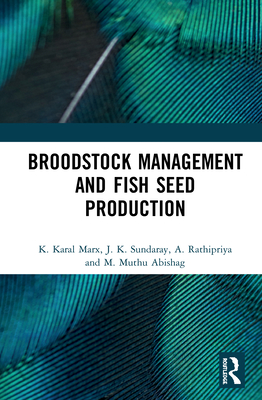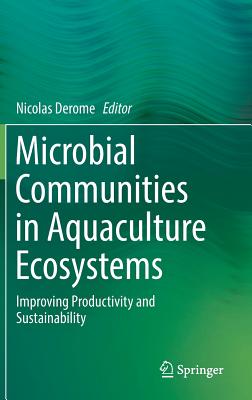Nanochitosan-Based Enhancement of Fisheries and Aquaculture: Aligning with Sustainable Development Goal 14 - Life Below Water
Isibor, Patrick Omoregie, Adeogun, Aina Olukukola, Enuneku, Alex Ajeh
- 出版商: Springer
- 出版日期: 2024-03-19
- 售價: $6,640
- 貴賓價: 9.5 折 $6,308
- 語言: 英文
- 頁數: 347
- 裝訂: Hardcover - also called cloth, retail trade, or trade
- ISBN: 3031522605
- ISBN-13: 9783031522604
海外代購書籍(需單獨結帳)
相關主題
商品描述
Nanochitosan-Based Enhancement of Fisheries and Aquaculture: Aligning with Sustainable Development Goal 14 - Life Below Water is an indispensable guide for envisioning an ecologically balanced and prosperous future for aquatic resource management. The book explores the innovative application of nanochitosan in aquatic resource management, delineating the cutting-edge potentials of the novel biopolymer to reshape the landscape of fisheries and aquaculture and align with the ambitions of the United Nations Sustainable Development Goals (Goal 14: Life Below Water). The book focuses on sustainability and showcases nanochitosan's capacity to elevate water quality, bolster aquatic well-being, and revolutionize aquaculture disease control, breeding, detoxification, and feed quality. Through practical applications, interdisciplinary insights, and a strong emphasis on food safety and conservation, readers gain a multifaceted understanding of thefield's advancements, future potential, challenges, and requisite nanochitosan-based techniques. This work navigates complex scientific concepts clearly, catering to a diverse audience, including researchers, practitioners, and students.
商品描述(中文翻譯)
「基於奈米幾丁聚醣的漁業和水產養殖增強:與可持續發展目標14 - 水下生命相契合」是一本不可或缺的指南,用於展望水產資源管理的生態平衡和繁榮未來。本書探討了奈米幾丁聚醣在水產資源管理中的創新應用,勾勒出這種新型生物聚合物的前沿潛力,以重塑漁業和水產養殖的格局,並與聯合國可持續發展目標(目標14:水下生命)的抱負相契合。本書著重於可持續性,展示了奈米幾丁聚醣提升水質、增強水生生物福祉以及革新水產養殖疾病控制、繁殖、解毒和飼料品質的能力。通過實際應用、跨學科見解和對食品安全和保護的強調,讀者可以全面了解該領域的進展、未來潛力、挑戰和必要的基於奈米幾丁聚醣的技術。本書以清晰易懂的方式解釋了複雜的科學概念,適合各種讀者,包括研究人員、從業人員和學生。
作者簡介
Patrick Omoregie Isibor, Ph.D., is a specialist in Pollution Studies and Ecotoxicology and a Lecturer and Researcher in the Department of Biological Sciences at Covenant University. He received his Ph.D. and M.Sc. in Environmental Quality Management from the University of Benin and a B.Sc. in Zoology from Ambrose Alli University. Dr. Isibor's research interests include ecotoxicology, hydrobiology, bioaccumulation, biosequestration, biodiversity conservation, and aquatic ecology. He is a member of the Association for Environmental Impact Assessment of Nigeria (AEIAN), the International Association of Risk and Compliance Professionals (IARCP), and the African Society for Toxicological Sciences (ASTS). Dr. Isibor is co-editor of the book Biotechnological Approaches to Sustainable Development Goals (Springer, 2023), an Editor for the African Journal of Health, Safety, and Environment, and a reviewer for several reputable international journals.
Aina Olukukola Adeogun, Ph.D., is a Professor of Aquatic Toxicology in the Department of Zoology, University of Ibadan, Nigeria. She has pioneered research on endocrine disruption and developed protocols for molecular and cellular toxicology in aquatic organisms towards water and food safety, especially for the vulnerable subpopulation (women and children) in tropical environments dependent on natural fish food as preferred protein sources. She received the Society of Toxicology Global Senior Scholar Award in 2018 and has recently published on the detection of microplastics in fish gut in a tropical municipal lake and showed potential human health effects due to the ability of MPs to be contaminant vectors. She has published over 80 articles in peer-reviewed journals, international conferences, as well as over 20 first-authored articles. She is the Past President of Toxicologists of African Origin (TAO) and chaired the TAO Informational Session on the COVID-19 pandemic in Africa, highlighting Africa's current status towards developing global best practices for curtailing this pandemic.
Alex Ajeh Enuneku, Ph.D, is a specialist in Pollution Studies and Ecotoxicology and Head of the Department of Environmental Management and Toxicology, Faculty of Life Sciences, University of Benin. He obtained his Ph.D. and M.Sc. in Pollution Studies and Ecotoxicology and a B.Sc. in Zoology from the University of Benin. He was certified as a chemical hazard control expert in 2016 by Hokkaido University Sapporo. Professor Enuneku's research interests include ecotoxicology, hydrobiology, pollution studies, endocrine disruption, health risk assessment, environmental impact assessment, environmental management, remote sensing, and geographic information systems. He is a member of the Society for Environmental Chemistry and Toxicology (SETAC), the Nigerian Environmental Society, and the Waste Management Association of Nigeria. He is a reviewer for several reputable international journals.
作者簡介(中文翻譯)
Patrick Omoregie Isibor, Ph.D.,是污染研究和生態毒理學專家,也是契約大學生物科學系的講師和研究員。他在貝寧大學獲得環境品質管理的博士和碩士學位,並在安布羅斯·阿利大學獲得動物學的學士學位。Isibor博士的研究興趣包括生態毒理學、水生生物學、生物累積、生物固定、生物多樣性保護和水生生態學。他是尼日利亞環境影響評估協會(AEIAN)、國際風險與合規專業協會(IARCP)和非洲毒理學科學協會(ASTS)的成員。Isibor博士是《生物技術方法實現可持續發展目標》(Springer,2023)的共同編輯,也是《非洲健康、安全和環境雜誌》的編輯,並且是多個知名國際期刊的審稿人。
Aina Olukukola Adeogun, Ph.D.,是尼日利亞伊巴丹大學動物學系的水生毒理學教授。她在激素干擾研究方面開創了先河,並制定了針對水生生物的分子和細胞毒理學協議,以確保水和食品的安全,特別是對依賴天然魚類食物作為首選蛋白質來源的熱帶環境中的脆弱人群(婦女和兒童)。她於2018年獲得毒理學學會全球高級學者獎,最近發表了關於在熱帶市區湖泊中檢測魚腸道中微塑料並顯示其對人體健康的潛在影響的研究,因為微塑料具有成為污染物傳播媒介的能力。她在同行評審的期刊、國際會議上發表了80多篇文章,並且有20多篇以第一作者身份發表。她是非洲毒理學家協會(TAO)的前任主席,並主持了TAO關於非洲COVID-19大流行的信息會議,強調非洲在制定遏制這一大流行病的全球最佳實踐方面的現狀。
Alex Ajeh Enuneku, Ph.D.,是污染研究和生態毒理學專家,也是貝寧大學生命科學院環境管理與毒理學系的系主任。他在貝寧大學獲得污染研究和生態毒理學的博士和碩士學位,並在該校獲得動物學的學士學位。他於2016年獲得北海道大學札幌校區的化學危害控制專家認證。Enuneku教授的研究興趣包括生態毒理學、水生生物學、污染研究、激素干擾、健康風險評估、環境影響評估、環境管理、遙感和地理信息系統。他是環境化學和毒理學學會(SETAC)、尼日利亞環境學會和尼日利亞廢物管理協會的成員。他是多個知名國際期刊的審稿人。











